
If you are a middle or high school student looking to get ahead of the curve, an academic or pre-college summer program is one of the best options you have to experience the rigor of a college atmosphere—possibly even earning you credits towards your future degree. In a pre-college program, you are essentially either taking undergraduate-level classes while still in high school or participating in an advanced educational program that will better prepare you for college.
You are often doing so with some of the added support of a group of peers who are in the same position; depending on the program, you may all live in a dorm together or take many of the same classes. In some programs, you may also be taking classes with undergraduate students at that institution.
Attending a for-credit, pre-college, or residential program, like many of the ones described below, is a fantastic way to explore areas of interest and learn more about specific subjects that are covered in new and interesting ways.
What is a Pre-College Program?
A pre-college summer program offers high school students the opportunity to take classes at a college or university and experience college life during the summer. Some of these programs are open to middle school students, but the majority of programs—and the most competitive—target high schoolers.
There are many reasons why these programs might be a good choice for you: they build leadership and life skills, help you prepare academically for higher education, strengthen your college applications, and allow you to interact with like-minded and driven students from the country and in some cases, from across the globe. These programs typically aim to not only give you a taste of what college or university is like, but to better prepare you for it.
The Best Pre-College Programs in 2025
We are going to be looking at three distinct types of programs for students interested in continuing their education during the summer: academic programs open to middle school students, other residential pre-college programs for high school students, and college credit-awarding courses for high school students.
Residential Pre-College Summer Programs
- Northwestern University’s Center for Talent Development (CTD)
- Duke University Continuing Studies Program
- Summer@Brown Pre-College Program
- Emory Pre-College Program
- Harvard University’s Pre-College Program
- Columbia’s NYC Residential Summer
Credit-Awarding Summer Programs
- Harvard Secondary School Program
- UChicago Immersion
- Emory Summer College Program
- Georgetown Summer College and Pre-College Academies
- Summer at Hopkins
- Northwestern University’s College Prep Program
- Yale Summer Session
Want to know which we think are the best of the best? Out of the many excellent programs above, these two stand out:
For middle and high school students interested in a summer residential program where they can engage in fun yet challenging academic activities with other students, we strongly recommend Northwestern University’s Center for Talent Development (CTD). The program has multiple residential summer camps of varying levels of difficulty and is a great option for students who want to challenge themselves academically.
For high school students looking for a residential summer program that awards college credit, we believe that Harvard University’s Secondary School Program offers the strongest combination of a challenging curriculum, meaningful college experience, and college credit.
Pre-College and Academic Programs for Middle Schoolers
Only a couple of pre-college programs at prestigious universities are open to middle schoolers: Northwestern’s Center for Talent Development (CTD) and Duke University Continuing Studies Program. Northwestern’s CTD is the most established, offering a selective residential program. The Duke University Continuing Studies Program (which replaced the illustrious Duke Talent Identification Program, which ended in 2020) has the potential to be good but it’s too new to recommend unequivocally, especially since their admissions requirements seem in flux.
In the case of both programs, high-achieving students will find a challenging environment where they are free to pursue their academic interests with other students who are similarly motivated. The residential nature of these programs are also a great way to foster independence in students looking to push themselves.
Northwestern University’s Center for Talent Development (CTD)
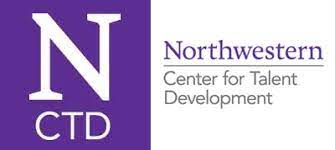 Northwestern’s Center for Talent Development provides educational opportunities to students age 3 through high school. The program’s Academic Summer Residential Camps for grades 6–12 focus on skills and independence needed to succeed in college.
Northwestern’s Center for Talent Development provides educational opportunities to students age 3 through high school. The program’s Academic Summer Residential Camps for grades 6–12 focus on skills and independence needed to succeed in college.
Both the one-week and three-week camps provide middle school students the opportunity to receive high school and college-level teaching. Courses are designed to teach students the critical and creative problem-solving skills they will need to excel in a more rigorous educational environment. They also introduce students to advanced concepts in a variety of subjects that would not typically be taught in middle school. Some examples of summer 2025 courses are Prophets and Poets, Toxic! The Biochemistry of Venom and Poison, and Fantasy Writing & World Building.
Applicants are required to submit a teacher recommendation attesting that the student is performing at least one and a half years above grade level, a recent school transcript, and most recent standardized testing report (e.g. NWEA/MAP) or results of a state grade-level assessment.
2025 Northwestern CTD Summer Program Dates
Three-Week Camps:
- Session 1: June 9–June 30
- Session 4: July 20–August 8
One-Week Camps:
- Session 2: July 6–11
- Session 3: July 13–18
- Session 5: July 20–July 25
- Session 6: July 27–August 1
Applications for this program are now open! The deadline for each session is a week before the start date, but applications submitted after May 31st face a $100 cost increase for the course.
Duke University Continuing Studies Program
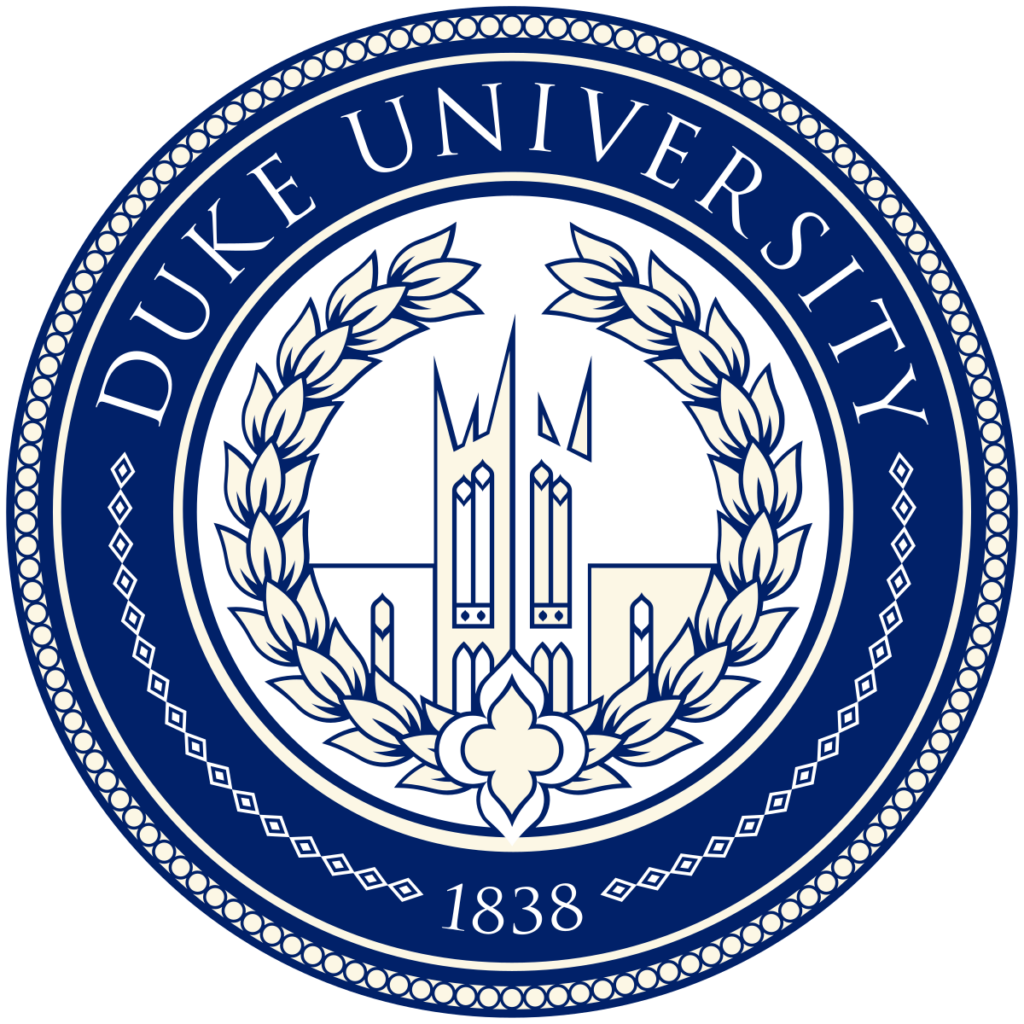 In place of TIP (the Talent Identification Program), Duke University Continuing Studies Programs continue to support a pre-college program open to middle school students. The goal of this program for grades 6–11 is to offer opportunities for high-achieving students to explore academic fields that might interest them but which would not otherwise be available in their typical education.
In place of TIP (the Talent Identification Program), Duke University Continuing Studies Programs continue to support a pre-college program open to middle school students. The goal of this program for grades 6–11 is to offer opportunities for high-achieving students to explore academic fields that might interest them but which would not otherwise be available in their typical education.
Duke Continuing Studies summer programs have different residences and different courses for middle and high school students, across both STEM and Humanities topics (including classes like Cryptography, Law and Technology, and Animal Cognition). 10th and 11th grade students also have the opportunity to take undergraduate classes for credit!
Applications for this summer program have no extra requirements (aside from age and grade restrictions)—Duke is piloting an open enrollment system for this summer.
The application deadline has closed for this year, unfortunately, but keep an eye out on their website around December for the program next summer!
Residential Summer Programs for High School
If you are someone who is driven, self-motivated, and is doing well in your advanced high school classes, you might want to consider looking into any of the following residential programs for the summer. Each program is filled with college-level courses, and any student is sure to find a class that aligns with their interests.
Brown University’s Summer@Brown Pre-College Program
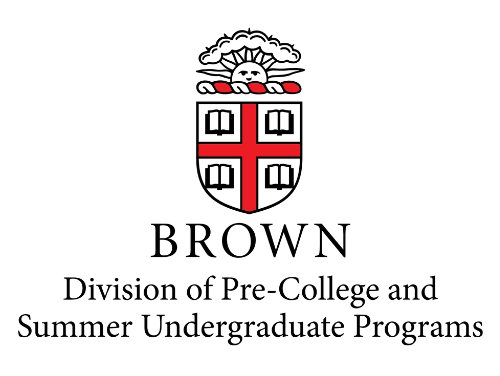 Current 9th–12th graders schoolers interested in attending a university with an open curriculum should consider applying to Brown University’s summer pre-college program, as it provides an opportunity to explore the student-driven learning at this school.
Current 9th–12th graders schoolers interested in attending a university with an open curriculum should consider applying to Brown University’s summer pre-college program, as it provides an opportunity to explore the student-driven learning at this school.
Summer@Brown offers over 300 courses, everything from natural sciences to creative arts, each with its own eligibility criteria. On-campus, online, and hybrid options are all available, but residential on-campus sessions range between 1–3 weeks in length.
If you attend this program, expect to be learning or studying for 30 hours a week—3 hours of class and 3 hours of study time each day. The non-credit courses and multitude of activities available to students provide students a perfect opportunity to learn how to manage their time and study effectively before college.
2025 Summer@Brown On-Campus Dates
1-Week Sessions:
- June 22–27
- July 6–11
- July 13–18
2-Week Sessions:
- June 22–July 3
- June 29–July 11
- July 13–25
3-Week Sessions:
- June 22–July 11
- July 6–25
Applications are now open for summer 2025 programs with rolling admissions until Friday, May 9! Requirements in your application include an essay, an application fee ($65 when submitted before April 8, after which it increases to $100), a transcript, and an optional recommendation. Learn more about the different courses available and how to apply at Summer@Brown’s online portal.
Emory Pre-College Program
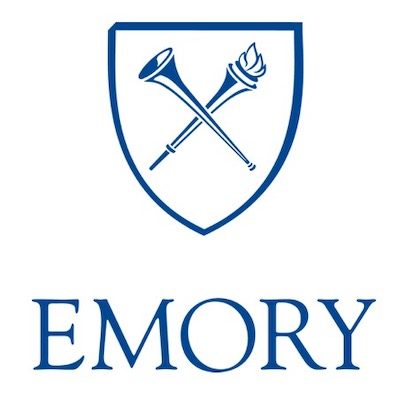 The Emory Pre-College Program is a two-week program for current 10th or 11th graders that includes more than 30 potential courses for interested students. Although these courses will not award college credit, they are still a fantastic way to prepare for a rigorous education at a premier university.
The Emory Pre-College Program is a two-week program for current 10th or 11th graders that includes more than 30 potential courses for interested students. Although these courses will not award college credit, they are still a fantastic way to prepare for a rigorous education at a premier university.
Emory’s pre-college program consists of three sessions spanning from mid-June to the end of July. The minimum accepted GPA is 3.0.
2025 Emory Summer Program Dates
- Session A: June 15–28
- Session B: June 29–July 12
- Session C: July 13–26
Applications for this program are now open, requiring a transcript, teacher recommendation, a $70 application fee, and optional test scores. The session-specific application deadlines are:
- Session A deadline: May 9
- Session B deadline: May 23
- Session C deadline: June 6
Harvard University’s Pre-College Program
 Students who apply to Harvard University’s pre-college program can expect an academically rigorous two-week course that prepares students for college life. College-level courses are offered without the worry of grades, as these are not for college credit. Outside of classes, students will have the opportunity to participate in both social and co-curricular activities that help connect participants with other highly motivated students.
Students who apply to Harvard University’s pre-college program can expect an academically rigorous two-week course that prepares students for college life. College-level courses are offered without the worry of grades, as these are not for college credit. Outside of classes, students will have the opportunity to participate in both social and co-curricular activities that help connect participants with other highly motivated students.
There are around 100 courses for students to choose from. While the courses are not graded, students who complete the college-level courses will receive written evaluations from their instructors and a Harvard transcript stating “Requirements Met” or “Requirements Not Met”, a strong supplement for your future college applications.
Rising high school juniors and seniors are eligible to apply to this extremely competitive program. The application process requires a transcript, a record of your current grades, a counselor report, and a $75 application fee. No standardized test scores are a part of the application assessment.
2025 Harvard Pre-College Program Dates
- Session I: June 22–July 3
- Session II: July 6–18
- Session III: July 20–August 1
The early and regular application deadlines for summer 2025 sessions have passed, but the late application deadline is open through April 9.
Columbia University NYC Residential Summer
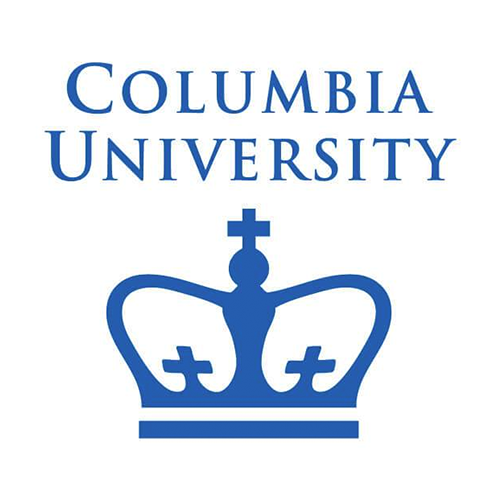 Students who want an immersive city-life college experience should apply to Columbia University’s NYC Residential summer program, open to rising and current 10–12th graders. Classes meet twice daily, and various activities and workshops are available every day for additional enrichment.
Students who want an immersive city-life college experience should apply to Columbia University’s NYC Residential summer program, open to rising and current 10–12th graders. Classes meet twice daily, and various activities and workshops are available every day for additional enrichment.
Accepted students will choose from over 70 courses to create their perfect schedule, take advantage of world-class campus resources, and explore life in New York City while gaining valuable experience as a self-motivated scholar. The program offers 3-week courses, and the application requirements includes a transcript and teacher recommendations.
2025 Columbia NYC Residential Summer Dates
- Session A: June 30–July 18
- Session B: July 22–August 8
- Session AB: June 24–August 2
Applications are now open for summer 2025 through March 18th, so have that on your radar over the next few weeks! If that’s a tight window and you’re interested in attending next year, make sure you complete the application requirements at the beginning of the year! (Transcripts, recommendations, and an application fee are all required.)
The Top Residential Summer Programs for High Schoolers
Program
Starting Grade
Residential
Term
Selective
Expense
Northwestern CTD
6
Yes
1-Week, 3-Weeks
Top 5%
$990 for 1-Week.
$2,970 for 3-Week.
Duke Pre-College
6
Yes
1-Week, 2-Weeks
Top 5%
$2,580 for 1-Week. $5,640 for 2-Week.
Summer@
Brown
9
Yes
1-, 2-, or 3-Weeks
Top 5%
$3,584–$8,006
Emory Pre-College
10
Yes
2-Weeks
3.0 GPA
$5,137
Harvard Pre-College Summer School
10
Yes
3-Weeks
Top 5%
$5,800
Columbia NYC Summer
9
Yes
3-Weeks, 6-Weeks
Top 5%
$12,750
Credit-Awarding Programs for High School Students
For some students, the experience of a residential program isn’t as enticing as the opportunity to actually earn college credit and progress on their future necessary coursework.
Many colleges and universities offer programs aimed specifically at these ambitious students. While these programs are not all residential, they do provide a true college experience—high school students will be attending courses with current university courses participating in classes attended by current university students.
The following programs are some of the best credit-awarding for high school students looking to get ahead.
Harvard University’s Secondary School Program
Harvard University’s Secondary School Program (SSP) is a summer program that provides rising sophomores, juniors, and seniors with (residential, commuter, or online) college summer courses that offer college credit. Students enrolled in the seven-week program will pick two courses from a catalog of over 200; those in the four-week program will select one course. Each class awards 4 credit hours.
Residential students of this camp will be able to live like a Harvard student and participate in many activities outside of classes, ranging from college counseling activities to music groups.
2025 Harvard SSP Dates:
- 4-Week program: July 13–August 9
- 7-Week program: June 21–August 9
Applications are still open for the 7-week program until April 9! This program is particularly competitive, and Harvard advisors suggest that interested students should apply as early as possible. A counselor report, transcripts, and the $75 application fee are required to apply.
The University of Chicago’s Immersion Program
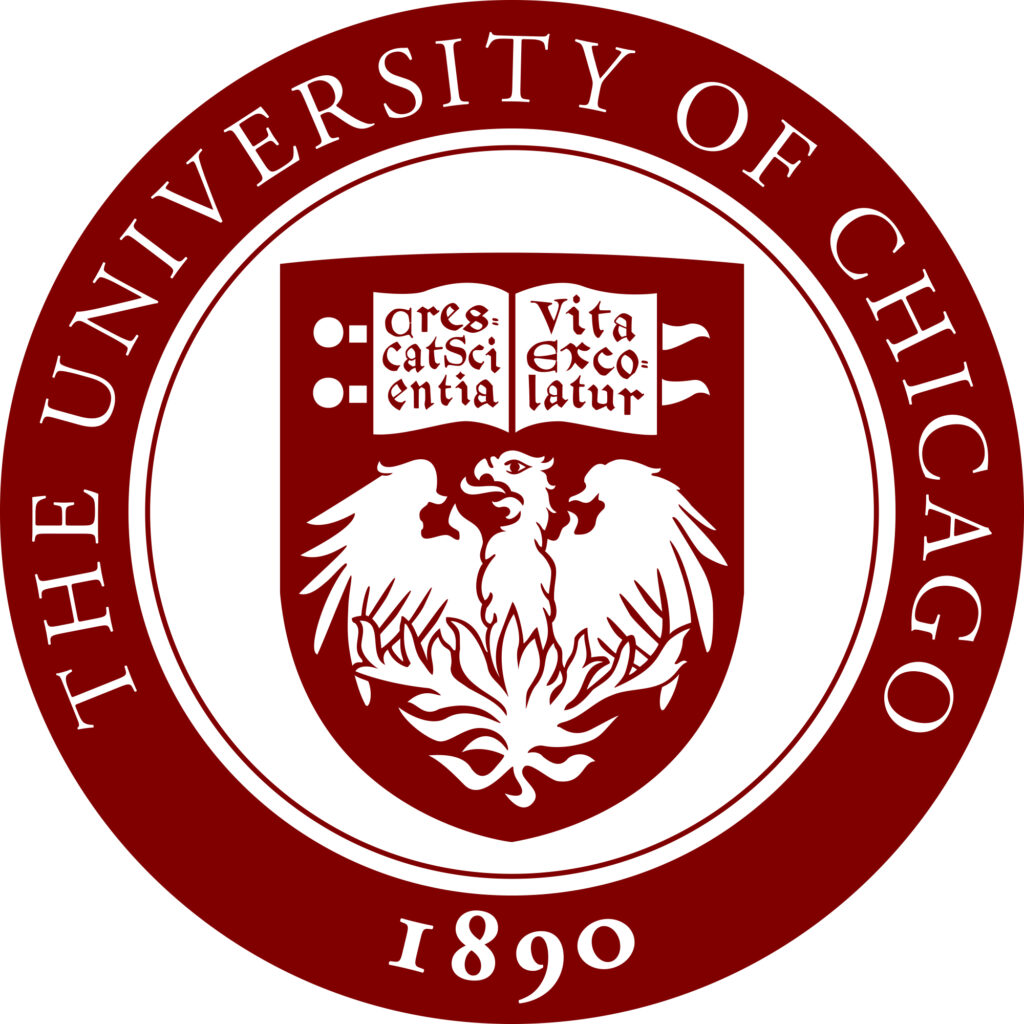 The University of Chicago’s Immersion Program truly is immersive. Rising 10-12th grade students participating in this program live in U of Chicago’s residence halls, attend class in-person, and have access to many of the resources provided to its undergraduate student body.
The University of Chicago’s Immersion Program truly is immersive. Rising 10-12th grade students participating in this program live in U of Chicago’s residence halls, attend class in-person, and have access to many of the resources provided to its undergraduate student body.
This intense program has two summer sessions, each about 3 weeks long. Students select one course for their session that they will attend from 9am–3pm, Monday through Friday. Each course is equivalent to a full, 9-week undergraduate course.
UChicago Immersion 2025 Dates:
- Session I: June 14–July 4
- Session II: July 7–July 26
The program is accepting rolling admissions through April 9.
Emory Summer College Program
The Emory Summer College Program is a six-week summer program in which 10th and 11th grade students can take actual college courses provided at Emory University.
Emory Summer College is a non-residential program. Students can enroll in this program fully online (or in person as a commuter) and take multiple courses for credits. A wide selection of classes are available, across several STEM and humanities subjects; further, this program also provides a College 101 course designed to help high schoolers prepare for college and the admissions process.
When considering applicants for its pre-college programs, Emory University typically focuses on grades and test scores (which are a mandatory part of the application process) and look for students who might be accepted when applying to the university during their senior year. Half of Emory students score between 1350 and 1520 on the SAT, or scoring between the 94th and 99th percentile. Similar PSAT scores would be 1220–1430 for sophomores and 1250–1430 for juniors. Emory accepts PSAT, SAT, PreACT, and ACT scores when considering applicants.
2025 Emory Summer College Program Dates:
- Session 1: May 16–June 27
- Session 2: June 30–August 8
Applications are open for Session 1 until April 25 and for Session 2 until June 6. Together with the online application, you must submit test scores, a transcript, and the $70 application fee.
Georgetown University’s Pre-College Programs
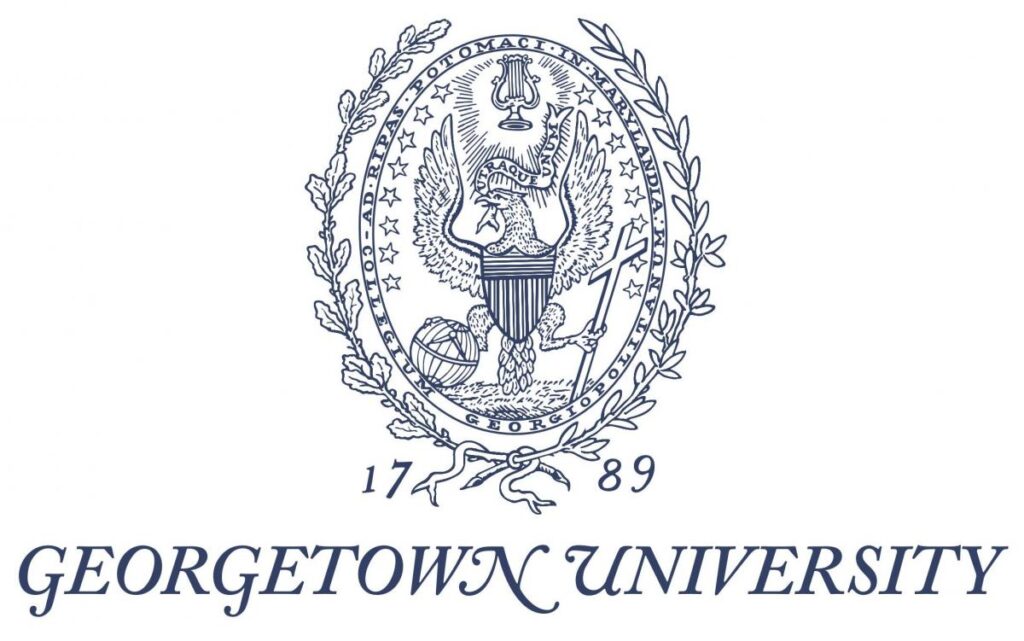
Georgetown University offers three pre-college summer programs of note: the College Prep program, the Summer College, and the Academies.
Georgetown’s College Prep Program is a five-week course that combines one college course, in which students can earn college credit through a 3- or 4-hour course, with college prep seminars that cover standardized test prep, strategies for the college admissions process, and skills needed to excel in a college environment. The course runs from the middle of July to the beginning of August.
Georgetown also offers separate credit-bearing courses for high achieving students in the Summer College. The application process is the same as the College Prep Program, but the student can take more courses and will not participate in the college prep seminars. Students can take up to two courses per session, with a selection available of both 5-week in-person courses or 8-week online classes.
2025 Georgetown Summer Program Dates:
College Prep Program: July 6–August 8
Summer College Program:
- Summer College 1: June 1–July 3
- Summer College 2: July 6–August 8
- Summer College Online: June 1–June 25
Applications—which require a $50 application fee, a personal statement, a transcript, and a recommendation letter—close on April 15.
Summer at Hopkins Programs
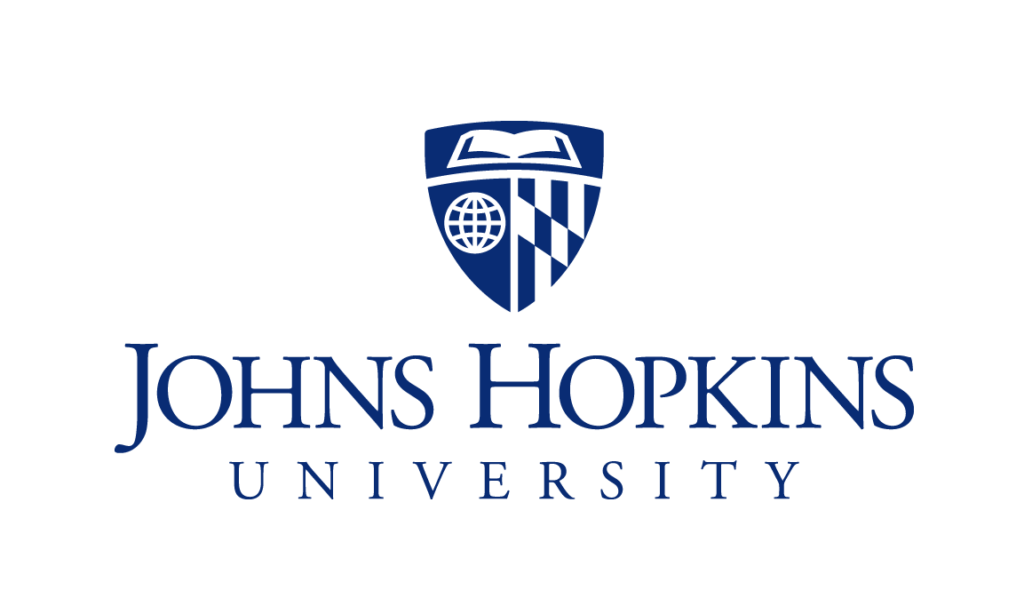 Johns Hopkins University offers both residential and online pre-college summer programs for academically advanced high school students. Residential students of either program have the chance to earn college credits alongside undergraduate students, while virtual scholars have the opportunity to make degree progress from their bedroom!
Johns Hopkins University offers both residential and online pre-college summer programs for academically advanced high school students. Residential students of either program have the chance to earn college credits alongside undergraduate students, while virtual scholars have the opportunity to make degree progress from their bedroom!
The Pre-College Program is open to rising sophomores, juniors, and seniors. This program consists of three two-week sessions between June and August, in which students will take college courses that align with their academic interests, earn academic credit, and get a taste of college life.
For rising juniors and seniors who want an even more immersive summer college experience, Johns Hopkins’ Summer Term is the perfect program. Like a next-level version of the Pre-College Program, in-person Summer Term students will spend 5 weeks taking courses and earning credits alongside Hopkins undergrads. (Online students can take courses 5, 6, 8, or 10 weeks in length.) High schoolers who take both Summer Term sessions will be able to earn up to fourteen credits during the entire term, all before graduating high school.
2025 Summer at Hopkins Dates
On-Campus Pre-College Program Dates:
- Session One: June 21–July 2
- Session Two: July 6–July 17
- Session Three: July 20–July 31
Online Pre-College Program Dates:
- Session One: June 23–July 5
- Session Two: July 7–July 18
- Session Three: July 21–August 1
Summer Term Dates:
- On-Campus
- Session A: May 27–June 27
- Session B: June 30–August 1
- Online
- Session A: May 27–June 27
- Session B: June 30–August 1
- Session C: May 19–June 27
- Session D: June 30–August 8
- Session E: June 2–July 25
- Session F: May 27–August 1
Applications are open for 2025 programs! All students applying for admission to Summer at Hopkins programs are required to have a minimum GPA of 3.0, send in an official transcript or report card, and pay an application fee of $85. Learn more about these programs, admission requirements, and costs on the Summer at Hopkins website.
Northwestern University’s College Prep Program
In addition to Northwestern University’s Center for Talent Development, the university also provides a path for rising juniors and seniors to receive college credit through its College Prep Program. In 2025, students can take “e-FOCUS” virtual seminars or enroll in the in-person “IN FOCUS” program with several sessions of two weeks each.
Each course offered is the equivalent to one college credit and gives high school students access to Northwestern faculty and instructors.
Included with the course is the “Wildcat Connect: Get Ready Series” which provides workshops and co-curricular activities for students in order to better prepare you for college and better integrate you into Northwestern’s community of students and alumni.
2025 Dates:
- e-Focus dates: July 22– August 2
- IN FOCUS Session 1: June 23–July 4
- IN FOCUS Session 2: July 7–18
- IN FOCUS Session 3: July 21–August 1
- IN FOCUS Session 4: August 4–August 15
The application deadline is April 1. Requirements include a personal statement, high school transcripts, a list of extracurriculars, and the $60 application fee.
Yale Summer Session
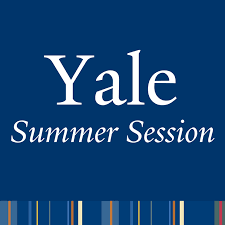 Rising or current high school seniors looking to take a peek into Ivy League life should consider Yale Summer Session. This five-week program is an opportunity to intensely focus on select topics as you make degree progress under real Yale faculty.
Rising or current high school seniors looking to take a peek into Ivy League life should consider Yale Summer Session. This five-week program is an opportunity to intensely focus on select topics as you make degree progress under real Yale faculty.
Both online and in-person courses are available, so students have the option to learn remotely or reside on-campus. The college courses offered span dozens of subjects, including classes that are unique and challenging.
2025 Yale Summer Session Dates
- Session A: May 26–June 27
- Session B: June 30–August 1
The 2025 Yale Summer Session application is open! Submit two letters of recommendation, a high school transcript, the $75 application fee, and optional test scores along with your application.
The Top Summer Programs to Earn College Credit
Program
Starting Grade
Residential
Term
Selective
Expense
Harvard SSP
10
Optional
4-Weeks, 7-Weeks
Top 5%
$8,650 (4-Weeks)
$14,950 (7-Weeks)
UChicago Immersion
9
Yes
3-Weeks
Top 5%
$8,600
Emory Summer College
10
No
6-Weeks
3.0 GPA
$5,797 (3-credit)
$7,670 (4-credit)
Georgetown College Prep Program
9
Optional
5-Weeks
3.0 GPA
$11,809
Georgetown Summer College Program
9
Optional
5-Weeks
(8 Online)
3.0 GPA
$6,621/course
Summer at Hopkins Pre-College
9
Optional
2-Weeks
3.0 GPA
$1,950/course (online)
$6,140/course (residential)
Summer at Hopkins Summer Term
9
Optional
2-Weeks
3.0 GPA
$2,500–$8,925 (online)
$6,300–$12,675 (residential)
Northwestern College Prep Programs
10
Optional
2-Weeks
Varies depending on tier
$1,795/course (e-FOCUS)
$4,850 (IN FOCUS)
Yale Summer Session
11
Optional
5-Weeks
Top 5%
$5,270/course
How Do You Get into Pre-College Summer Programs?
All of the programs listed above are competitive, with students from across the country vying for entry. Given that, we have a few tips for students to look to when applying.
Apply Early
Most of these programs fill up very quickly. While we have the most recent deadlines listed in the above tables, the more important date is when applications open. We won’t have those dates until the end of the fall semester at the earliest, but students who apply closer to when applications open are much more likely to be successful.
Have Great Letters of Recommendation and Grades
Two areas that appear universally on the applications for these programs are transcripts and letters of recommendations. Having good grades to get into competitive academic programs is probably a given, but many students overlook the importance of having good relationships with their teachers and school counselors or advisers.
In addition to having good grades, most of these programs want students who are motivated and push themselves academically. Grades alone don’t tell that story. The letters of recommendation can have a powerful effect on your application as this is where universities get a better view of what it’s like to have you in their classroom.
Know Exactly What You Want Out of the Program
Most applications require students to submit at least one essay—usually detailing why you want to attend. Where letters of recommendation help schools better understand you as a student from a third-person perspective, these essays give them insight into you as a person and your genuine interest in your education.
You need to have a strong, well-thought out, and developed answer to why you want to attend this specific program at this particular school. Have answers in your essay to “Why this school?”, “Why this course?”, and “Why this program?”. If your essay can be submitted without meaningful edits to multiple programs, then it probably isn’t specific enough.
Should You Apply for these Programs?
The big question you are likely asking yourself, even before reading this article, is whether any of these programs are right for you. We can’t answer that question, but we do have some things you should consider when making that decision.
The first question you’ll need to ask yourself is, “What exactly do you hope to get out of whatever program you are looking at?” If you are looking for a summer camp for smart, intellectually curious kids, we believe the residential programs are a fantastic way to have many experiences that simply aren’t available elsewhere. It’s important to note, however, that while these programs can be impressive résumé items, being accepted into one in no way guarantees your acceptance into that college or university as an undergraduate. Almost all of the universities and colleges with pre-college programs state that they do not consider attendance at pre-college programs when considering applications to their school.
Lastly, if you are simply looking for a program that will stimulate your curiosity, many universities offer personal enrichment programs that are neither residential nor offer credit. We don’t generally suggest these programs and they aren’t listed above, but they are an option you may want to consider.
SAT and ACT Prep with Piqosity
We hope this information about some pre-college programs was helpful. As you are deciding among the many pre-college programs available, you might notice that they tend to be quite competitive. Don’t forget to use outside resources to prepare for any upcoming standardized exams you have. If you’re on your college application journey, Piqosity is here to help with your standardized testing!
Along with our full-length, online ELA and Math courses for grades 6-11, we offer full SAT, ACT, and ISEE test prep courses, each of which includes 10 practice exams, dozens of concept lessons, personalized practice software, and more.
In addition to our upcoming digital SAT course, we’re also offering a free digital PSAT! This practice digital PSAT is designed to help you study ahead of time for the new exam format, available by signing up for a Piqosity community account.
Our free community account allows you to try out all of Piqosity’s features. When you’re ready to upgrade, Piqosity’s year-long accounts start at only $89. Plus, get a 10% off coupon just by signing up for our mailing list!


